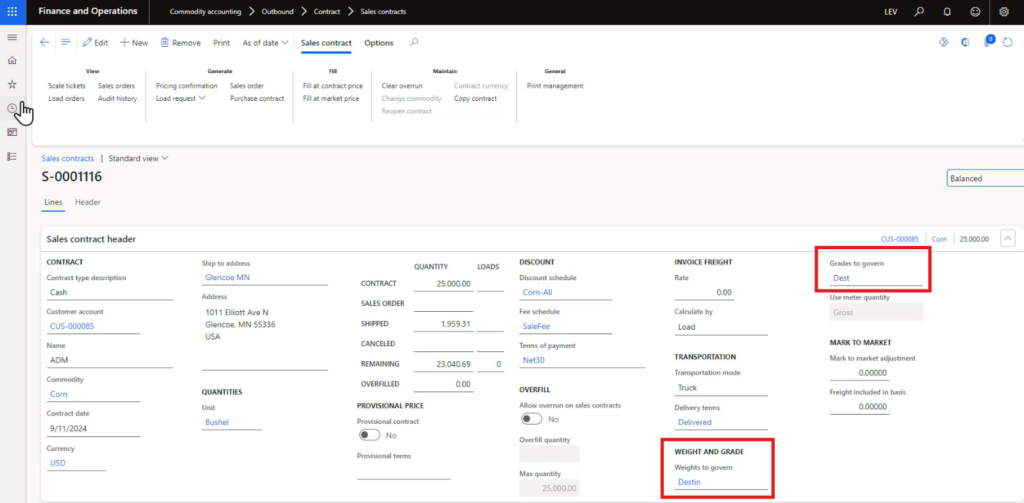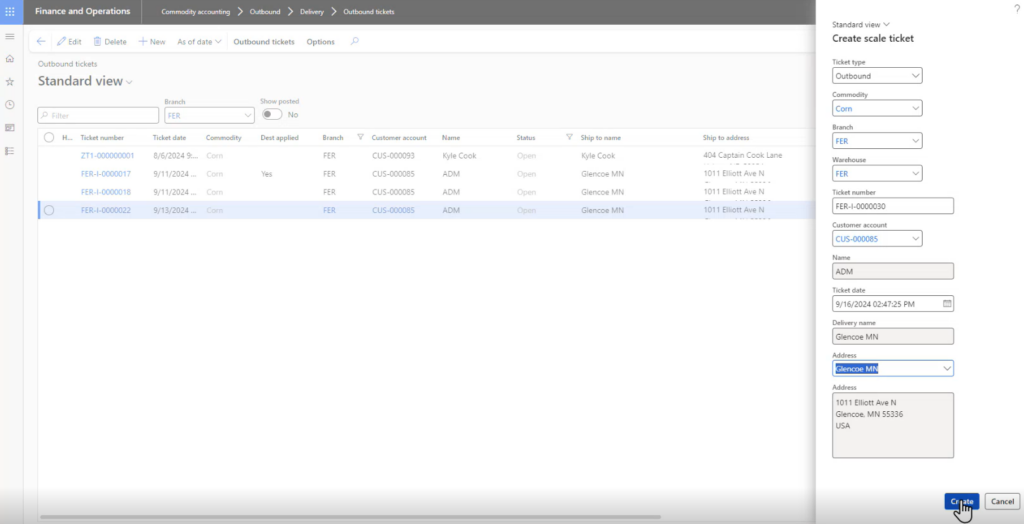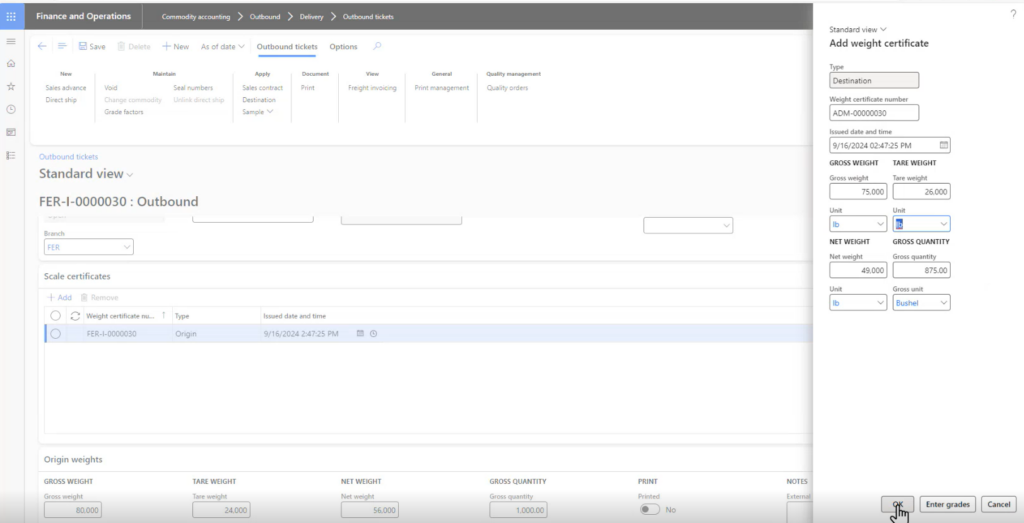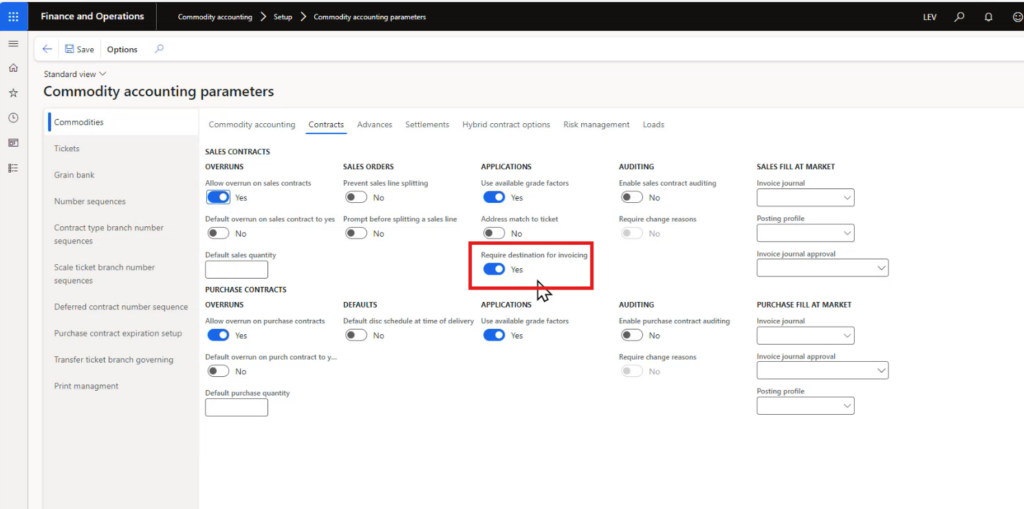Apply Outbound Ticket Destination Weights and Grades After Origin Applied to Contract
Levridge 2024 Release 2.0 introduces a powerful new feature that allows users to update outbound scale tickets with destination weights and grades even after they have been applied to a sales contract.
The Challenge of Managing Outbound Tickets
In many cases, the weights and grades at the destination differ from those at the origin, making it essential to update these values after the commodity reaches its final destination. This can occur days later, further complicating the task of maintaining accurate records. The inability to easily update destination weights and grades meant that users often relied on manual workarounds, leading to discrepancies between actual delivered quantities and what was recorded in the system.
How It Works
A company has an outbound contract with a customer, ADM, for 25,000 bushels of corn. Initially, 19,593.1 bushels have been applied to the contract. The contract is set to use destination weights, meaning the final accounting for the shipment will depend on the actual weights and grades recorded at the destination, rather than the origin.

1. Creating an Outbound Scale Ticket: The user first creates a new outbound scale ticket for the shipment, with a gross weight of 1,000 bushels. The system applies this ticket to the sales contract, using the origin weights for the time being, and reduces the open quantity on the contract accordingly. The remaining quantity on the contract now reflects the delivered quantity based on the origin weight, even though the destination weights have not yet been recorded.

2. Updating Destination Weights: After the shipment reaches its destination, the user receives the final destination weights and grades, which can differ from the origin data due to various factors such as shrinkage during transport. In this example, the destination gross weight is significantly less than the 1,000 bushels recorded at the origin.

3. Applying Destination Data: The user enters the destination weight into the system and clicks on Destination to apply to the sales contract. The contract now reflects the accurate delivered quantity based on the destination data. In this case, the open quantity on the contract is adjusted to reflect the new total, ensuring accurate accounting and avoiding the need to unapply and reapply the contract.
Benefits of Updating Destination Weights
Efficiency: Users no longer need to unapply and reapply contracts to update destination weights, saving significant time and reducing manual labor.
Accuracy: Contracts are updated automatically with the correct quantities, ensuring that all financial calculations—such as discounts and fees—are based on the actual delivered amounts rather than the initial origin estimates.
Flexibility: The system allows for destination weights and grades to be entered even after an invoice has been generated. While this won’t affect the net quantity or discounts already invoiced, it ensures that future reports and records are accurate.
Rules and Exceptions for Updating Destination Weights
While the system provides great flexibility, there are a few rules to be aware of when using this feature:
– If the Ticket Has Been Invoiced: Users can still update destination weights and grades after an invoice has been generated. However, the system will not recalculate the net quantity or discounts on the invoice. This ensures that previously issued invoices remain unchanged while future adjustments can be made based on updated data.
You can turn on or turn off the destination requirement here:

– Unapplied Tickets: Destination weights can also be entered on tickets that haven’t been applied to a contract yet. Once the ticket is applied, the system will automatically update the contract quantities based on the destination data.
The Levridge 2024 Release 2.0 new feature for managing outbound scale tickets with destination weights and grades significantly improves the efficiency and accuracy of commodity accounting. By allowing users to update destination data after tickets have been applied to contracts, businesses can ensure their sales contracts reflect accurate delivered quantities, reducing manual effort and improving overall contract management.